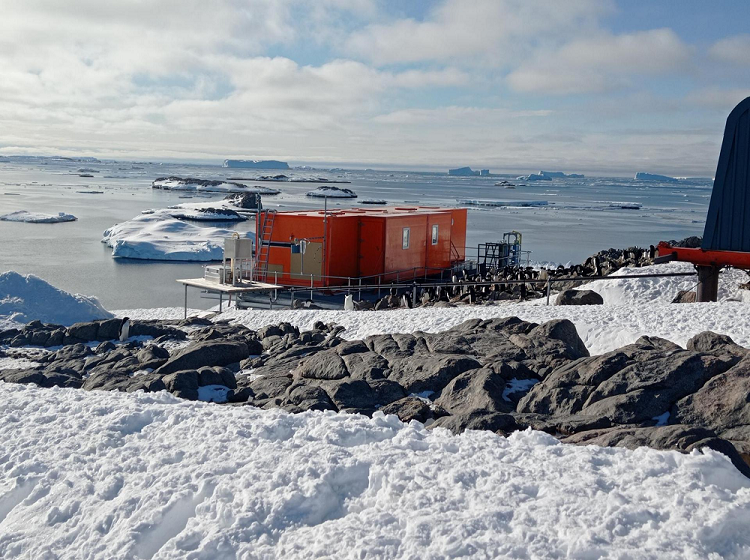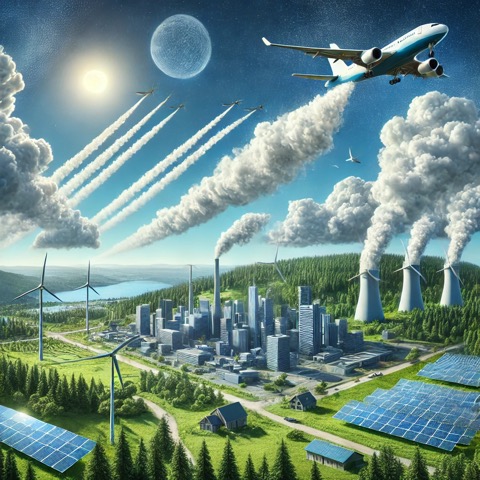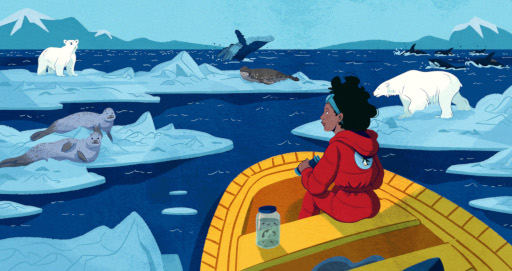The managers of the themes are grouped together in pairs or threes (for example researcher/lecturer-researcher) and are charged with the mission of organising scientific events, linking scientific activities with education and contributing to the strategic thinking of IPSL.
Polar Regions

This Working Group on the study of the climate and environment of the polar regions, combining field studies and missions, modeling (including ice caps and snow), space observations and laboratory analyses.
Geoingineering

Geoengineering is a set of techniques aimed at deliberately manipulating the Earth's environment, generally to mitigate the effects of climate change. These techniques can be grouped into two main categories: carbon capture and storage and the reduction of solar radiation absorbed at the surface..
Urban theme (since 2024)

This theme is promoting IPSL research studying how the atmosphere, the water cycle or different ecosystems in urban environments interact with the built-up surface and anthropogenic activities.
Marine biogeochemistry, ecosystems and resources
 In contrast to the atmosphere - the other fluid envelop of the Earth -, the ocean hosts a large amount of the Earth’s living matter. These marine organisms are an integral part of the climate system.
In contrast to the atmosphere - the other fluid envelop of the Earth -, the ocean hosts a large amount of the Earth’s living matter. These marine organisms are an integral part of the climate system.
Atmospheric composition and air quality
 The theme "Atmospheric composition and air quality" focuses on describing and understanding the formation and evolution of chemical compounds in the atmosphere from the boundary layer (air quality) to the stratosphere.
The theme "Atmospheric composition and air quality" focuses on describing and understanding the formation and evolution of chemical compounds in the atmosphere from the boundary layer (air quality) to the stratosphere.
The Water Cycle
 Earth has only a finite volume of water which is being recycled through the various reservoirs. Climate change, meteorological processes as well all forms of life are strongly affected by changes in this continuous and interconnected cycle.
Earth has only a finite volume of water which is being recycled through the various reservoirs. Climate change, meteorological processes as well all forms of life are strongly affected by changes in this continuous and interconnected cycle.
Paleoclimate

Understanding past climate evolution, variability and its impact on the environment
The IPSL "Paleoclimate" research theme investigates the evolution of the Earth’s climate, as well as the related mechanisms and environmental responses over geological time, in order to better understand natural climatic variability.
Statistics for Analysis, Modelling and Assimilation (SAMA)
 The combined use of observations and modelling techniques makes it possible to represent the climate, geophysical fluids and their constituents, and to improve their forecasting.
The combined use of observations and modelling techniques makes it possible to represent the climate, geophysical fluids and their constituents, and to improve their forecasting.
Solar systems
 The exploration of the solar system and discovery of exoplanets now allow for comparative studies of Earth and its various extra-terrestrial analogues. IPSL is involved in these studies which incidentally allows for testing its Earth models in extreme conditions.
The exploration of the solar system and discovery of exoplanets now allow for comparative studies of Earth and its various extra-terrestrial analogues. IPSL is involved in these studies which incidentally allows for testing its Earth models in extreme conditions.
Internal and forced climate variability
 The climate variability designates the fluctuations of the characteristics climate system: Diurnal cycles - Tropical modes from the subseasonal to interannual time scales - Decadal to multidecadal modes of variability - Atmospheric modes of the midlatitudes.
The climate variability designates the fluctuations of the characteristics climate system: Diurnal cycles - Tropical modes from the subseasonal to interannual time scales - Decadal to multidecadal modes of variability - Atmospheric modes of the midlatitudes.
Land biogeochemistry, ecosystems and agriculture (2018-2024)
 Terrestrial ecosystems play an important role in global biogeochemical cycles. Tightly associated, these biogeochemical cycles are strongly altered by agricultural practices and the ongoing climate change.
Terrestrial ecosystems play an important role in global biogeochemical cycles. Tightly associated, these biogeochemical cycles are strongly altered by agricultural practices and the ongoing climate change.



